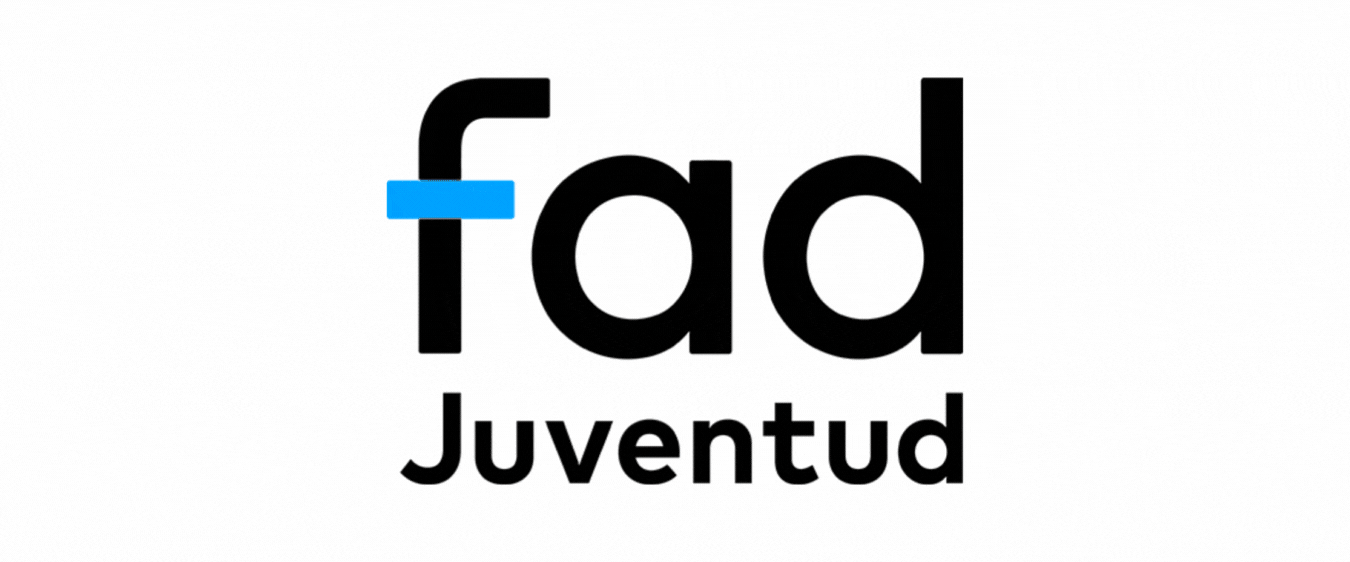
The youth specialist organization promotes innovative campaigns and programmes to promote the best values
From the APCP and, in particular, as patrons of the Fundación Fad Juventud, we are interested in publicizing the activities that not only promote positive values in society but also do so through tools that appreciate the relevance of the audiovisual sector.
The Fundación Fad Juventud, since its origin 35 years ago, aims to improve the welfare and quality of life of young people as protagonists of the present and architects of the future. Its mission is to analyze, act and influence everything that affects youth development, according to the principles framed in the SDGs and human rights that underpin justice, solidarity, sustainability, ethics, equity and inclusion. Always upholding the values of independence and critical spirit, transparency and rigor, commitment and solidarity, and innovation and flexibility.
In this sense, in addition to promoting innovative and high-impact advertising campaigns with complex subjects to tackle, it is responsible for programmes, through its virtual campus, that use audiovisual language as a tool to promote these values. According to them, cinema has a great capacity to transmit values, attitudes and life models because in film, the surrounding reality is reinterpreted and even reinvented. Moreover, the entertaining nature of cinema makes it possible for individuals to identify with it and to adopt some of the values or behaviors conveyed in the films. This faculty means that cinema can play a fundamental role in people’s socialization processes.
The attraction that the audiovisual format arouses and the wide dissemination of the film market has an impact on all sectors of society. The good reception it has among children, adolescents, young people and adults, also gives it the capacity to be used, with guarantees of success, as a tool for education in values in any area of training. From a generic point of view, cinema can be educational if the person watching it is capable of evaluating and criticising not only the plot, but also all the elements that make up a film: script, direction of actors, acting, photography, editing, soundtrack, etc. From the point of view of risk prevention, the same principle applies. Cinema can be a preventive agent if the spectator is enabled to analyze and criticize situations, symbols or messages that provide guidance on the risks to be avoided or that support the development of more mature positions, favoring values. For all these reasons, they promote the programme Cinema and Education in Values 2.0, which, through the Web, aims to offer educational tools incorporating cinema as a key axis, and whose main objective is to facilitate and enrich the work of all those professionals who contribute to the growth and development of children and adolescents in more or less formal settings.
School training programme through cinema
The FAD began using cinema as a preventive tool in 1995, and from that year to the present day it has been expanding the range of educational programmes and activities based on cinema, diversifying and broadening the profile of the target population. In this way, they offer public (both local and regional) and private administrations the participation in a school prevention programme through Cinema, Cinema and Education in Values 2.0, defined as a complementary element to other actions that may be being developed. To this end, they also have the collaboration of the Ministry of Health, Social Policy and Equality, EGEDA and various local councils.
The main objectives of the Cinema and Education in Values 2.0 programme are as follows:
- Participate in the educational process by incorporating education in values into the curricular project of each center, not as a segmentation of knowledge and attitudes into independent areas, but transversally in order to facilitate reflection that allows solutions to be sought and tested.
- To take advantage of the theme and content of the selected film to train pupils in values, attitudes and social skills which, as protective factors against drug use, help to reduce the appearance of future risk behavior.
- To encourage pupils to enjoy cinema as a positive way of using their free time, developing its potential as a source of education and cultural enrichment.
The Cinema and Education in Values 2.0 programme is aimed at teachers and pupils in Primary Education (6-12 years) and Compulsory Secondary Education (12-16 years), although it can also be used in other educational contexts for pupils in the aforementioned age groups.
Youth employability programmes
Employability in the audiovisual production sector
Together with EGEDA
This project aims to contribute to improving the professional skills of young students in vocational training branches linked to the audiovisual production sector, favouring greater employability in this sector, the development of young talent in this field and, in general, contributing to the promotion of Spanish audiovisual production. All of this through: a communication campaign that highlights the value of young talent in Spanish audiovisual production; direct support for audiovisual projects that include a topic of social interest, developed by groups of vocational training students from different areas of the sector; and specific training on intellectual property rights in the audiovisual production sector for students from different branches of the sector. The last edition reached 300 young people.
Teaming up: working in the audiovisual sector
Together with Netflix
Netflix and Fad Juventud offer a practical training course to learn about the employment opportunities offered by the audiovisual production sector in the professional families of props or electricity and electronics. The last edition had a reach of 59 young people.
To find out more about the organization, its campaigns and programmes, or to join as a partner or collaborator, you can access its contact form at the following link.



